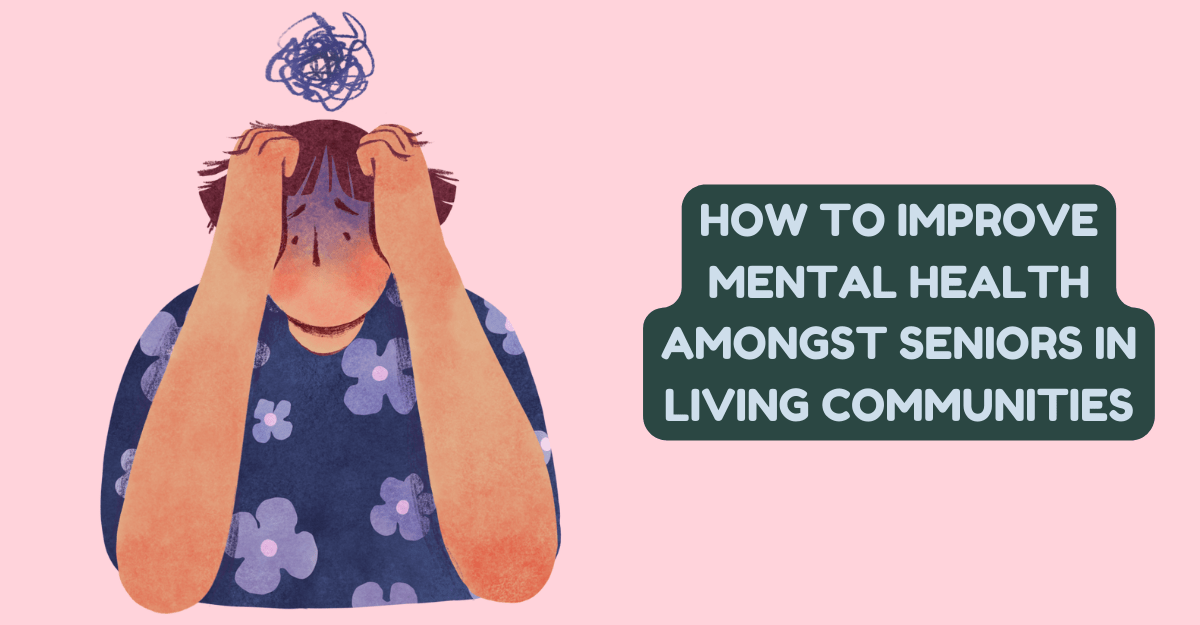
How to Improve Mental Health Amongst Seniors in Living Communities
Mental health is a crucial aspect of well-being for seniors in living communities. As they transition into these settings, the need for emotional support and mental stimulation becomes paramount. Creating an environment that fosters mental health can significantly enhance the quality of life for residents. This article explores strategies to improve mental well-being in senior living communities.
Creating a Supportive Environment
Creating a supportive environment is essential for promoting mental well-being in independent living facilities. The design and layout of these communities play a significant role in fostering social interaction and accessibility. Features such as common areas, walking paths, and recreational facilities encourage residents to engage with one another and stay active. Additionally, ensuring that living spaces are well-lit and comfortable can greatly impact the mood and overall mental health of seniors.
Safety and security measures are also crucial components of a supportive environment. Implementing emergency response systems and providing staff training in mental health awareness can offer residents peace of mind. Regular safety drills and clear communication channels ensure that residents feel secure in their surroundings. Access to on-site healthcare professionals can further contribute to a sense of safety and well-being among residents.
Promoting Social Engagement
Promoting social engagement is vital in enhancing mental health among seniors. Organizing regular social events, such as group outings, game nights, and cultural activities, can foster a sense of community. Encouraging participation in clubs or interest groups within the facility allows residents to connect over shared hobbies. Additionally, facilitating intergenerational programs can provide meaningful interactions and a fresh perspective for seniors. These initiatives can combat loneliness and promote a vibrant, active social life in living communities.
Integrating Physical Activity Programs
Integrating physical activity programs is essential for maintaining mental and physical health among seniors. Tailored exercise classes, such as yoga or tai chi, can improve flexibility and reduce stress. Walking clubs encourage regular movement while providing social interaction. On-site fitness centers equipped with age-appropriate equipment make exercise accessible and convenient. These programs not only boost physical well-being but also enhance mood and cognitive function, contributing to overall mental health.
Encouraging Mindfulness and Stress Reduction
Encouraging mindfulness and stress reduction is crucial for mental well-being. Offering meditation and mindfulness sessions can help seniors focus on the present moment, reducing anxiety. Stress reduction workshops teach coping strategies and relaxation techniques. Providing access to quiet spaces, such as gardens or reading rooms, allows residents to unwind and reflect.
Providing Access to Mental Health Resources
Providing access to mental health resources is essential for supporting seniors. On-site counseling services offer a convenient way for residents to address emotional concerns. Regular mental health screenings can help identify issues early and provide timely interventions. Educational seminars on mental health topics raise awareness and destigmatize seeking help. Collaborating with local mental health organizations can bring additional resources and expertise to the community, ensuring comprehensive support for the mental well-being of seniors.
Implementing Cognitive Stimulation Activities
Implementing cognitive stimulation activities is key to maintaining mental agility in seniors. Activities like memory games, puzzles, and brain teasers can enhance cognitive function. Offering classes in new skills or hobbies, such as painting or learning a language, stimulates mental growth. Regular book clubs or discussion groups encourage critical thinking and social interaction. Incorporating technology, such as computer classes or virtual reality experiences, can also provide engaging and novel ways to keep the mind active.
Fostering a Sense of Purpose and Achievement
Fostering a sense of purpose and achievement is vital for seniors’ mental health. Volunteer programs within the community can provide meaningful engagement and a sense of contribution. Recognizing residents’ achievements, whether in hobbies or personal goals, boosts self-esteem and motivation. Encouraging leadership roles in community activities empowers seniors to take an active part in their environment.
Moving Forward: Enhancing Senior Mental Well-being
Enhancing mental health in senior living communities is vital for the well-being of residents. By fostering supportive environments, promoting social engagement, and providing access to resources, we can make a positive impact. Implementing these strategies will lead to more fulfilling experiences for seniors. Together, we can ensure a brighter, healthier future for our elderly population.






